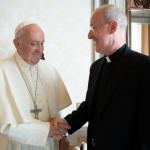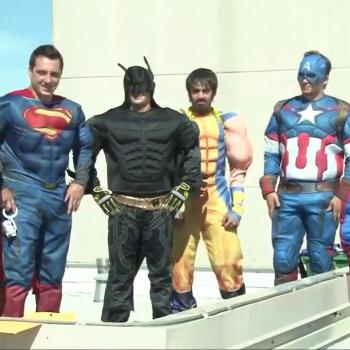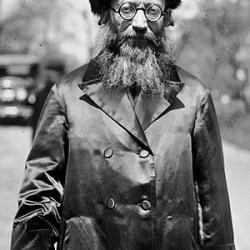My Great Bishop of my home diocese, the archdiocese of Boston, was recently hanging with some seminarians for their summer retreat at The Franciscan Guest House and Retreat Center in Kennebunkport, Maine. He joined them for Mass and lunch and gave this incredible talk that lays out a true vision of the Pro-Life movement and what it should look like. Here are some of those reflections that he offered the seminarians during their retreat. It also talks about the very touchy issue of politicians receiving the Eucharist and deals with how the US bishops are dealing with it. It’s well worth the read and brings some thoughts about the situation the average Joe and Jane in the internet com boxes might not have thought of.
Blessing many beautiful parish renovations – Cardinal Seán’s Blog (cardinalseansblog.org)
The Catholic Church and Slavery
In my mind, the two greatest evils in American history are slavery and abortion. I will always be ashamed that instead of strongly opposing slavery and racism, too often in our history, American Catholics tended to be assimilated into the dominant culture that justified slavery, maybe even as a necessary evil, but necessary. Religious communities and Catholics were slaveowners; bishops defended the institution of slavery. This was fueled in part by a Catholic inferiority complex that impelled us to be ever trying to prove how American we were and, hence, very pliable under societal pressure. There were Catholic abolitionists, but the Church in the United States failed miserably to be a prophetic voice by not condemning the cruel institution of slavery. Other religious groups like the Quakers were much more faithful to the Gospel values and defending the human rights of the enslaved. The Catholic Church’s historical complicity with slavery causes much pain and shame today, particularly among our Black Catholics.
The Catholic Church and Abortion
The Catholic Church’s history with abortion in the United States is different. We were not co-opted by the secular culture; we were not assimilated into the pro-abortion mentality of political correctness. The Catholic Church in the United States — the hierarchy of the United States —has never retreated from the fight against abortion. And before other groups ever raised a finger, the Catholic bishops were loud in our opposition to the culture of death. I do not know of any other hierarchy in the world that has fought harder to stop abortion and to promote the Gospel of Life.
As a young priest, I was working with Nellie Gray, organizing the first March for Life in Washington, eating the peanut butter and jelly sandwiches she would serve me in her living room. Nellie Gray was a lawyer working in the Labor Department at the time of Roe vs. Wade. She immediately gave up her job and dedicated her life to making the world safer for unborn babies. The pundits were all saying that these groups of pro-life people will all die off, and the future will be ours — for the people of choice.
Well, 50 years later, the pro-life movement has not died off, and, in great part, it is because the Catholic Church is here.
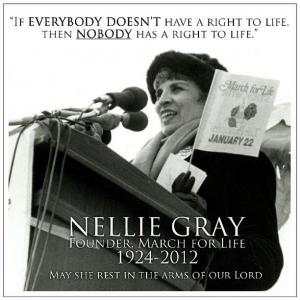
Preparedness for the Eucharist.
In my lifetime, our Church has not done a great job in teaching people about preparedness for the Eucharist. I grew up in a world where many people were afraid to come to Communion. If you swallowed even a sip of water while brushing your teeth, you might be afraid to draw near the Communion rail for fear of committing a sacrilege. As a young priest, I spent hours in the confessional with people tortured by scruples. No Catholic ever wants to commit a sacrilege. That fear often made people hesitate to receive the sacrament.
At the same time, I saw many people were motivated to leave behind a life of sin and vice because of their hunger to receive the Eucharist. Mauriac speaks of how people’s hunger for the Eucharist brings about conversion in their lives. Some people have resisted temptation, overcome feelings of jealousy and revenge, abandoned infidelities and lies, all because of their desire to be able to receive the Body and Blood of Christ worthily.
After the Second Vatican Council, we had many liturgical changes that came quickly. Many of these changes were very helpful, but often there was little explanation or catechesis about why things were changing. When I was a young lad, to receive Communion, we fasted from midnight, even from water. Only the priests could touch the host. We received Communion kneeling down. We all went to confession almost every Saturday. Women covered their heads in Church, if not with a hat, with a piece of Kleenex or a glove. All of this changed practically overnight. There was never any anthropological consideration of how changing the symbols can change the meaning for people.
One of the things that changed was the connection between confession and Communion. Suddenly, the impression was often given that everyone was invited to come forward to receive, regardless of their preparedness or lack of it.
The Current Conversation
I would welcome a good catechesis about how we must prepare to receive the Eucharist worthily, but I fear that the discussion that is simply about denying Communion to politicians has already become the focus of the conversation, resulting in a lot of finger-pointing and finger waving. The serious examination that we need to make as Catholics is being subsumed into the political polarization of our country.
Our Catholics, whether conservative liberal or middle-of-the-road, have been through a lot. I always say that being a Catholic in Boston is a contact sport. The secularization of our culture, the loss of a commonly held Christian anthropology, and now the fallout of the sex abuse crisis have left Catholics shaken in their faith, angry at the bishops and mistrustful of leadership in the Church.
The controversy about the denying of Communion to politicians fuels anger on both sides. If we bishops get caught up in this fight, we can easily give the impression that we are divided in our opposition to abortion, and I do not believe that.
We need to show a united stance on behalf of the Gospel of life and all of its ramifications. If we are divided, we will be weakening the Church, and our ability to promote the Gospel of Life will be compromised. Denial of Communion to politicians will be interpreted by most Americans and Catholics as partisan politics that has nothing to do with reverence or piety.
I understand how Catholics can be angry and saddened when our elected officials try to dismiss the Gospel of Life as some optional sectarian issue rather than the sacred duty to defend human rights. It has nothing to do about imposing our Catholic faith on anyone. It is a human rights issue.
A True Pro-Life Vision
We need to recommit ourselves to working tirelessly to overcome abortion by changing hearts, by serving women in difficult pregnancies and by changing the conditions of injustice that push people to the tragic choice of destroying their own children.
So often, when I am speaking to our priests and deacons about their great responsibility to teach the truths of the Catholic faith, I try to make the point that people will give us a hearing if they see that we are authentic in living our life of discipleship and if they are convinced that we care about them.
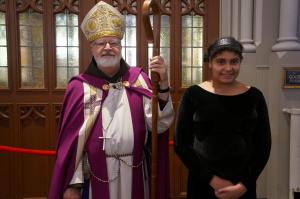 My daughter when she was becoming Catholic
My daughter when she was becoming Catholic
The Holy Father calls on us to dialogue with those who do not agree with our convictions. We must try to engage in a way that will bring more light and less heat to the conversation. Otherwise, the sad divisions that plague our country and our Church will only grow deeper and more intractable.
A Very Challenging Time for the Pro-Life Cause
Today, we are living a very challenging time for the pro-life cause, as became evident at our Spring General Assembly of the U.S. Conference of Catholic Bishops. Though each bishop may have a different opinion on the best way to promote the defense of life in the current context, there is no doubt in my mind that they are all pro-life and want to do what is in their power to protect innocent human life and communicate the Church’s social teaching to our Catholic people.
It’s hard to imagine anyone in the United States who does not know of the Catholic Church’s unfailing opposition to abortion. This will never change.
The present debate about Communion for Catholic politicians supporting abortion exhibits a deep divide among the bishops on this topic, but not on abortion.
Unfortunately, when these kinds of divisions become too evident, it hinders our ability to be able to teach the Gospel and draw our communities closer to Christ and one another.
The Eucharist is the center of our life as a Church, and I hope that, as the drafting of the document progresses, we will find a way to reconcile the different perspectives on how to take a pastoral approach with our Catholic politicians without undermining the centrality and importance of the Eucharist.
The Holy Father is urging us to find paths to heal divisions and announce the good news boldly and joyfully.
End of Cardinal Sean’s Thoughts
My Concluding Thoughts
You’ll notice that Cardinal Sean talked about abortion being more than just putting laws on the books stopping abortion.
We need to recommit ourselves to working tirelessly to overcome abortion by changing hearts, by serving women in difficult pregnancies and by changing the conditions of injustice that push people to the tragic choice of destroying their own children.
A lot of Catholics tend to bah humbug that an approach to abortion is anything but putting laws on the book. The attitude that changing the situation of why women commit abortion is malarkey to a good amount of pro-lifers. But I think my good bishop laid out pretty well that stopping abortion is more than just putting laws on the books. Cardinal Sean reminds us…
The Holy Father calls on us to dialogue with those who do not agree with our convictions.
If Catholics act like a bunch of angry pharisees in their approach to the pro-life cause, people will less likely to listen to us when we want to talk to them about preserving life in the womb and when we want to talk to them about eternal life in Christ through his Church.
I try to make the point that people will give us a hearing if they see that we are authentic in living our life of discipleship and if they are convinced that we care about them.
Many pro-lifers identify as Republican. The charge to always vote republican and never democrat is the rallying cry of many pro-lifers as the best way to end abortion. This is how many non-pro-lifers see the Republican party and thus pro-lifers.
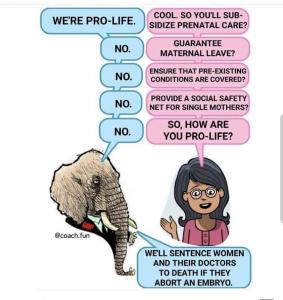
This is not how we want non-pro-lifers to see us. I have seen pro-lifers call for a holy war to stop abortion, so the violent tendency to further the pro-life cause is real. This is not just an unfair ad hominem against pro-lifers, but a true worldview held by several pro-life individuals. When certain Catholics get on a soap box and condemn a great amount of Catholics who do not vote according to their political convictions, like some very popular Catholic priests, we do not get a hearing from people who we want to evangelize. This goes for both the Catholic faith and to the pro-life cause.
Another Legitimate Perspective
Here is another viewpoint about the Biden-Communion debate that is both intelligent, interesting, imaginative and gives a different perspective that is not diametrically opposed to what Cardinal Sean was talking about. It goes along with this statement of his.
In my lifetime, our Church has not done a great job in teaching people about preparedness for the Eucharist.
Here is some good Eucharist preparation (with nods to Creation, C.S. Lewis and the Avengers)
More News On the Pro-Life Front
Here is what is happening on the Pro-Life Front as of July 27,2021. If your reading this article many months or years from now, how much has changed from this time period.
If we want to open dialogue about how pro-life the Catholic Church is, we need to address this particular issue.
Trudeau says Pope Francis should apologize on Canadian soil – ABC News (go.com)
Prime Minister Justin Trudeau said Friday he has urged Pope Francis to come to Canada to apologize for church-run boarding schools where hundreds of unmarked graves have been found, and he said Canadians are “horrified and ashamed” by their government’s longtime policy of forcing Indigenous children to attend such schools.
Indigenous leaders said this week that 600 or more remains were discovered at the Marieval Indian Residential School, which operated from 1899 to 1997 in the province of Saskatchewan. Last month, some 215 remains were reported at a similar school in British Columbia.
A popular Catholic priests challenges and invites pro-choice politicians to a dialogue.
Sixty Catholic House members released a “Statement of Principles” in response to the U.S. bishops’ recent meeting discussing “Eucharistic coherence” and whether politicians explicitly and persistently advocating abortions have precluded themselves from fittingly receiving Holy Communion. My answer here to that Statement addresses three groups:
- those who’ve read the document (whether with sympathy or suspicion);
- those who signed it;
- whomever wrote it.
Good News for Pro-Life Issues.
AP-NORC poll: Most say restrict abortion after 1st trimester (apnews.com)
A solid majority of Americans believe most abortions should be legal in the first three months of a woman’s pregnancy, but most say the procedure should usually be illegal in the second and third trimesters, according to a new poll.
House Minority Leader Kevin McCarthy, R-Calif., and several other Republican leaders in the House asked their Democratic counterparts June 22 to take up a measure introduced by Rep. Chris Smith, R-N.J., that would make the long-standing Hyde Amendment permanent.
The Hyde Amendment, which first became law in 1976, prohibits use of federal Medicaid dollars for abortion except in cases of rape, incest or when the life of the woman would be endangered.
Pope Francis met with the president of the European Parliament on Saturday, two days after the EU’s law-making body endorsed an “extreme” report on abortion.
The pope received David Sassoli in a private audience at the Vatican on June 26.
A European Parliament press release said: “The conversation with the Holy Father focused on the need to protect the weakest and most vulnerable: the rights of people are the measure of all things. The European recovery will only be successful if it produces a reduction in inequalities.”


